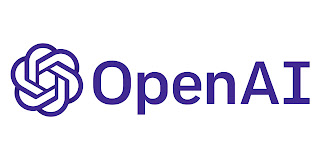OpenAI and ChatGPT are leading the way in advancing artificial intelligence and revolutionizing human-AI interactions. With the development of ChatGPT, OpenAI has created a language model that has the potential to significantly improve the way people interact with technology. This has the potential to transform numerous industries, from customer service to language translation, and beyond.
OpenAI’s ChatGPT model is built on advanced natural language processing algorithms, which allow it to understand and respond to human language in a way that is similar to a human. This technology has been trained on vast amounts of data and has been designed to understand and respond to context, tone, and emotion in human language. As a result, ChatGPT is able to respond to questions, provide information, and engage in conversations in a way that feels natural and intuitive.
One of the key ways that ChatGPT and OpenAI are changing the way we interact with technology is through AI-powered customer service. ChatGPT can be integrated into customer service platforms, allowing customers to interact with AI-powered virtual assistants that can respond to their questions and provide information in real-time. This can lead to a more efficient and personalized customer experience, as customers are able to quickly and easily get the information they need.
Another way that ChatGPT and OpenAI are transforming the way we interact with technology is through language translation. With its advanced language processing capabilities, ChatGPT has the potential to provide real-time, accurate language translation services. This could have a profound impact on global communication and could make it easier for people from different countries and cultures to communicate with one another.
In addition to improving customer service and language translation, ChatGPT and OpenAI have the potential to transform many other industries as well. For example, in the field of education, ChatGPT could be used to provide students with personalized learning experiences. In healthcare, ChatGPT could be used to assist doctors and patients with diagnosing and treating illnesses.
Despite its many potential benefits, there are also concerns about the role of AI in shaping the future of human-AI interactions. Some experts have raised concerns about the potential for AI to perpetuate bias and discrimination, and others have raised concerns about the potential for AI to displace human workers. OpenAI is acutely aware of these concerns, and the company is taking a responsible approach to the development and deployment of AI technology.
In conclusion, ChatGPT and OpenAI are playing a significant role in advancing AI technology and revolutionizing human-AI interactions. With its advanced natural language processing capabilities, ChatGPT has the potential to transform many industries and improve the way people interact with technology. OpenAI is committed to developing AI in a responsible and ethical manner, and the company’s work is helping to shape the future of AI and human-AI interactions.
Donate me!
wallet address: 0x3a7d35e62bd1425036d98d28d2bf43d6887e48ac

.jpg)
.jpg)

.jpg)
.jpg)
.jpg)

.jpg)

.jpg)

.jpg)



.jpg)
